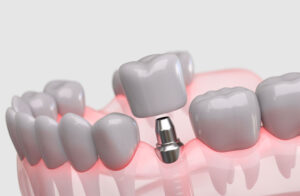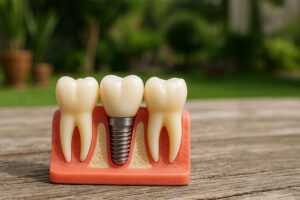Bruxism (teeth grinding) is often discussed in conjunction with temporomandibular joint (TMJ) disorder. Though they are distinctly different conditions, they are related. You can have bruxism without TMJ disorder or TMJ without bruxism, but they typically occur together.
What is Bruxism?
Bruxism is a common oral health issue that can be brought on by bite misalignment or stress. The clenching and grinding of teeth associated with bruxism commonly occurs at night, when you are sleeping. Over time, this can damage your teeth and place stress on your muscles. Additionally, grinding your teeth night after night can misalign your jaw, placing you at risk for TMJ in Wayne, NJ.
TMJ Disorder and Symptoms
The temporomandibular joint is the jaw joint that helps you talk, chew, and yawn. When this becomes misaligned, you may experience a variety of symptoms, including:
- Headaches
- Jaw pain
- Earaches and ringing in the ears
- Facial pain
- Muscle spasms
- Jaw clicking or popping
When you consider the symptoms of TMJ, it is easy to see how bruxism can play a role. Teeth grinding can result from a misalignment of the jaw or push the jaw out of alignment. Other contributing factors to TMJ in Wayne, NJ, include injury to the jaw, arthritis of the jaw joint, and bite misalignment.
Treatments for TMJ and Bruxism
Bruxism can be prevented with a customized night guard. Your doctor can create a comfortable appliance that can be worn while you sleep to stop your teeth from coming into contact. An occlusal adjustment or orthodontics may be recommended if bite misalignment is the source of the problem.
If you have jaw pain and believe that you may be grinding your teeth, call our office for a one-on-one consultation with Dr. Laurence Breiterman. We have extensive experience helping patients with TMJ disorder and bruxism and offers the treatments you need to restore your oral health.






